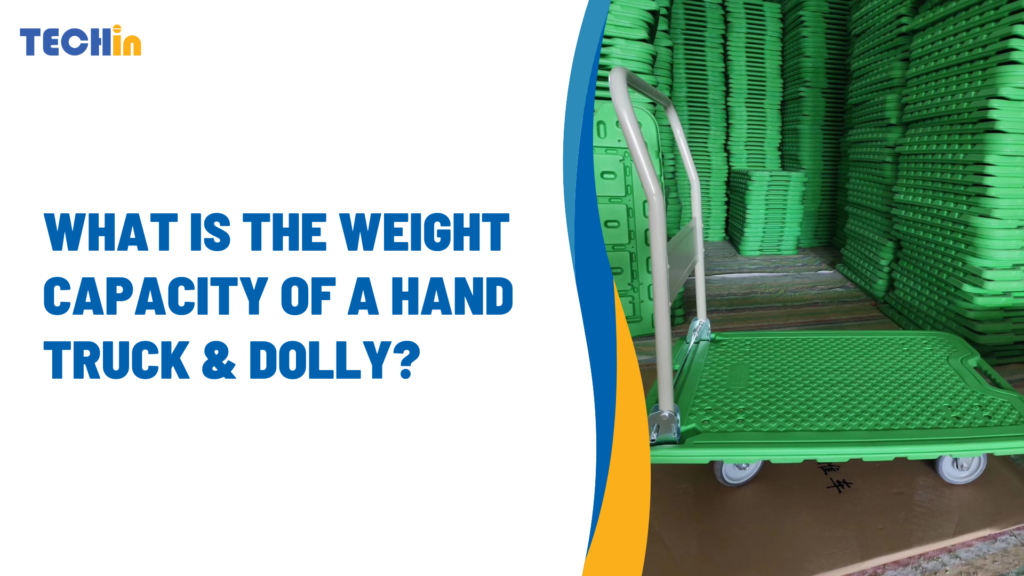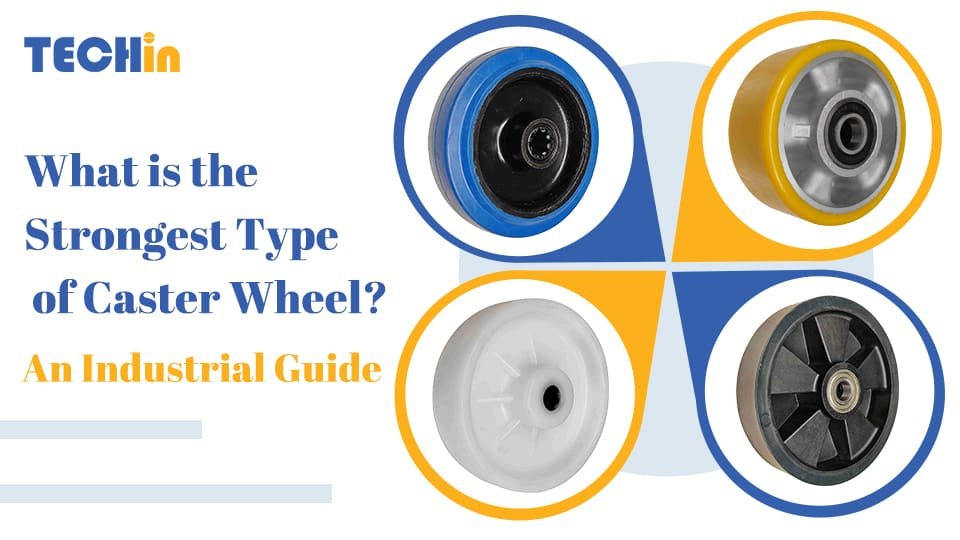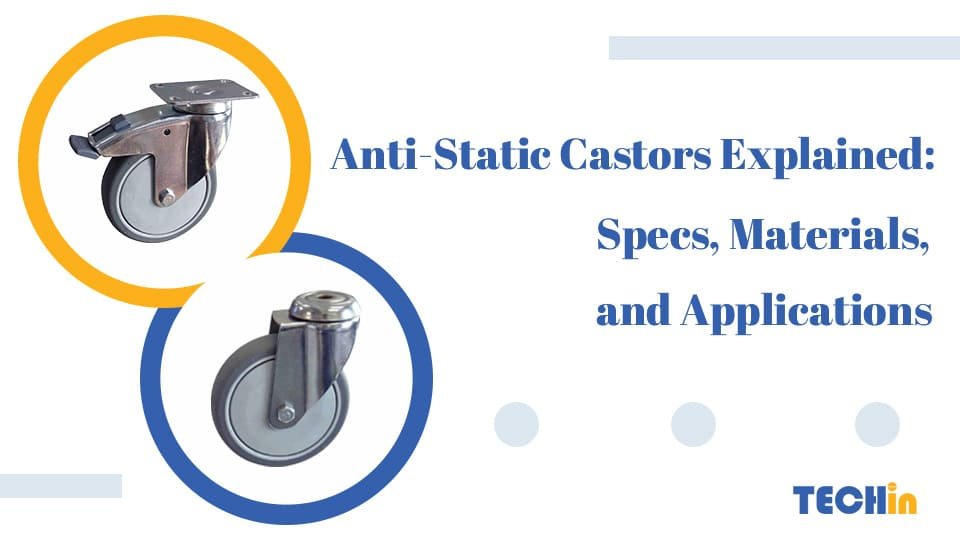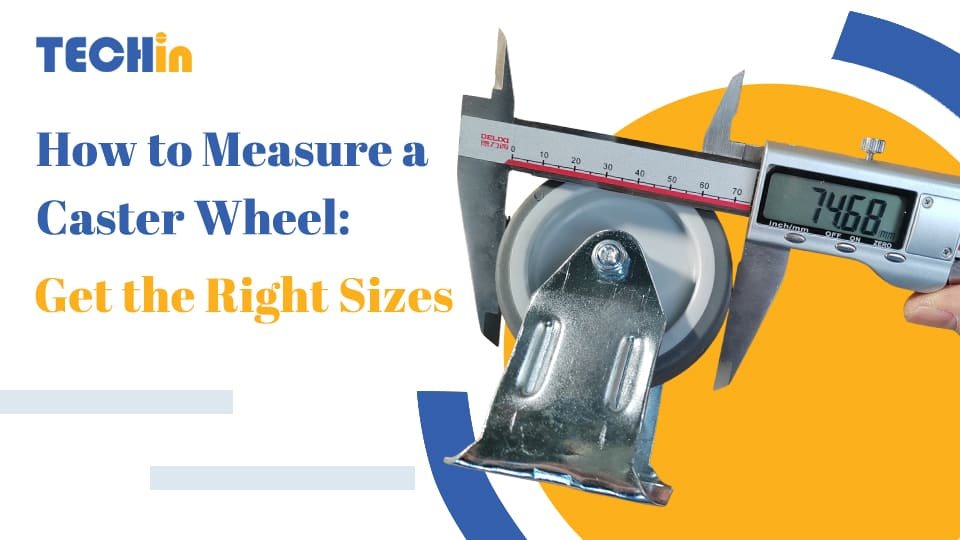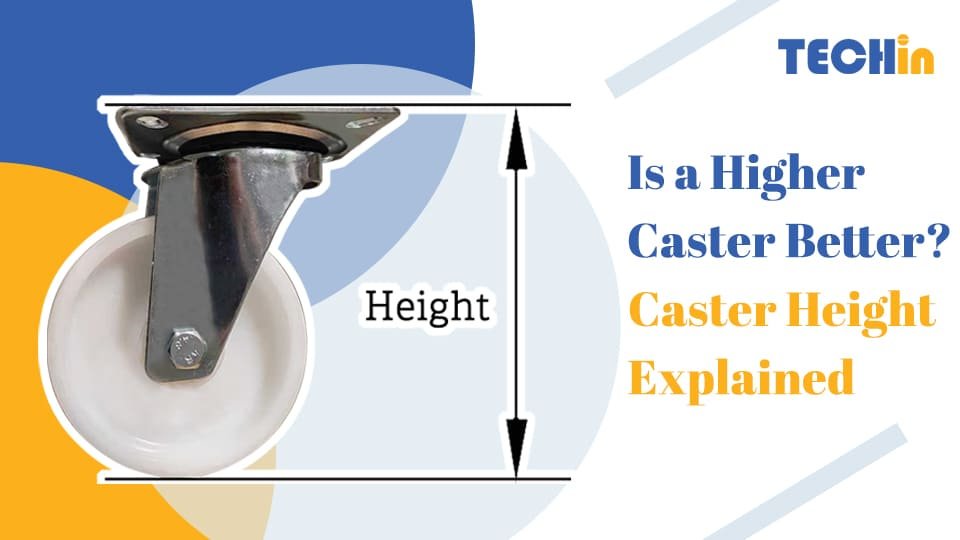1. Introduction
Hand trucks and dollies are must-have tools for moving heavy or bulky stuff in industries like logistics, warehousing, retail, and even in offices. But while most people focus on the hand truck’s frame or the dolly’s platform, an equally important part is the caster wheels. These wheels determine how much weight the truck or dolly can handle, how easily it rolls, and how long it lasts.
For buyers, it’s important to understand the weight capacity of hand trucks and dollies—especially as it relates to the caster wheels. Whether you’re moving boxes in a small office or heavy crates in a warehouse, choosing the right caster wheels can make a big difference in the safety, performance, and lifespan of your equipment.
In this article, we’ll walk you through the factors that affect weight capacity and how to choose the right caster wheels for your needs.
2. Understanding Weight Capacity
Weight capacity refers to the maximum load that a hand truck or dolly can safely carry without risking structural failure or operational issues. Often, buyers associate weight capacity with the strength of the frame or platform. However, caster wheels play a pivotal role in supporting and distributing the load.
For example, even if a hand truck has a strong steel frame, if the caster wheels are poorly designed or made from low-quality materials, the load-bearing potential of the entire truck is compromised. It’s the caster wheels that bear the brunt of the load, ensuring that it’s moved smoothly and efficiently.
Without the right wheels, not only does weight capacity suffer, but the overall performance of the hand truck or dolly declines, leading to issues like decreased maneuverability or even wheel failure.
3. Factors Affecting Weight Capacity
Materials Used
The materials from which both the hand truck frame and caster wheels are made directly influence weight capacity.
- Steel caster wheels are the strongest, offering excellent support for extremely heavy loads. They are ideal for industrial settings where loads can exceed 600 kg (1,320 lbs).
- Polyurethane caster wheels, which offer a balance between strength and shock absorption, are suitable for medium to heavy loads, especially when durability and a smooth ride over various surfaces are needed. These are typically rated for weights between 200-600 kg (440-1,320 lbs).
- Rubber caster wheels are more suitable for light to medium loads (up to 200 kg or 440 lbs). While they provide good grip and flexibility, they lack the durability of polyurethane or steel for heavier loads.
Each material has its own characteristics, and buyers should choose based on the specific load requirements and operating conditions of their hand trucks and dollies.
Wheel Design and Size
Wheel size is a crucial determinant of both weight capacity and maneuverability. Larger wheels, for example, offer better load distribution and are able to traverse rough surfaces more effectively than smaller wheels. Larger caster wheels also reduce the strain on both the wheels and the hand truck, making them more durable and less prone to damage under heavy loads.
For high-capacity hand trucks or dollies, pneumatic wheels or heavy-duty solid polyurethane wheels are often recommended. Pneumatic wheels absorb shock and perform well on uneven surfaces, while polyurethane wheels provide a combination of strength and resilience.
Additionally, dual-wheel configurations can dramatically increase the load capacity by distributing the weight across a wider surface area, reducing pressure on any one point.
Bearings and Axle Strength
Not all caster wheels are created equal when it comes to the internal components. The quality of bearings and axles has a significant impact on weight capacity and ease of movement.
- Ball bearings offer superior load support and reduce friction, allowing even heavy loads to be moved smoothly with minimal effort. These are common in high-end industrial casters.
- Plain bearings are simpler and cheaper but are best suited for light to medium-duty hand trucks and dollies.
A strong, well-engineered axle is essential for maintaining wheel alignment under heavy loads. Without a sturdy axle, the wheels could become misaligned, causing the truck to veer off course or creating drag that makes it difficult to move.
4. Common Weight Capacities for Hand Trucks and Dollies (Caster Wheel Focus)
Let’s take a closer look at common weight capacities for hand trucks and dollies, focusing on how different caster wheels contribute to these capacities:
- Light-duty Hand Trucks (Up to 150-200 kg / 330-440 lbs): These hand trucks typically feature rubber or plastic caster wheels. They are ideal for moving lighter loads in smaller spaces like offices or retail stores.
- Medium-duty Hand Trucks (200-350 kg / 440-770 lbs): Polyurethane caster wheels dominate this range, offering strength and versatility for a variety of environments. These wheels balance weight support and shock absorption, making them suitable for general warehouse use or transporting medium-weight goods.
- Heavy-duty Hand Trucks (350-600+ kg / 770-1,320+ lbs): Steel or reinforced polyurethane caster wheels are necessary for these capacities. These trucks are built for industrial applications, moving heavy crates, machinery, or large volumes of goods across long distances. Steel wheels, in particular, handle the heaviest loads and maintain structural integrity under extreme conditions.
Each hand truck or dolly has a unique combination of frame strength and caster wheel capacity, so matching the wheel type to your expected loads is crucial for optimal performance.
5. How to Choose the Right Caster Wheels for Weight Capacity
Assess the Typical Load
The starting point in choosing the right caster wheels is understanding the average weight of the items you typically transport. If you consistently move loads near the upper weight limit of your current hand truck or dolly, upgrading to wheels that offer a higher capacity is recommended.
Consider the Operating Environment
Where will the hand truck or dolly be used? If you’re working indoors on smooth floors, solid rubber wheels may suffice. However, if you’re frequently moving loads over rough or uneven terrain, pneumatic or polyurethane wheels are better suited, providing a smoother ride and better shock absorption.
Plan for Future Needs
Weight capacity should always include a safety margin. For instance, if your heaviest load is 300 kg (660 lbs), consider opting for caster wheels rated for 350-400 kg (770-880 lbs). This safety margin ensures that any extra strain from sudden impacts or uneven surfaces won’t result in wheel failure.
6. Consequences of Using the Wrong Caster Wheels
Using caster wheels that aren’t designed to handle your typical loads can result in serious consequences:
- Wheel Deformation: Low-quality or inappropriate wheels can buckle under excessive weight, causing permanent deformation or rendering the hand truck unusable.
- Breakage and Failure: Overloading can cause caster wheels to crack or detach from the frame, putting not only your cargo at risk but also your employees.
- Operational Challenges: If the caster wheels are struggling to support the weight, the hand truck will become harder to maneuver, increasing the likelihood of accidents or worker fatigue.
Investing in high-quality caster wheels ensures that your hand truck or dolly operates safely and efficiently over the long term.
7. Conclusion
Knowing the weight capacity of hand trucks and dollies is about more than just looking at the frame or the platform. The caster wheels are a big part of how much weight they can handle and how well they work. Buyers need to pay attention to the wheel material, design, size, and bearings to make sure they match the weight and the environment where they’re going to be used.
At Techin, we specialize in providing durable and reliable caster wheels designed for hand trucks and dollies, tailored to various load capacities and operational environments. If you need assistance in selecting the best caster wheels for your equipment, our team is here to help you make the right choice.

